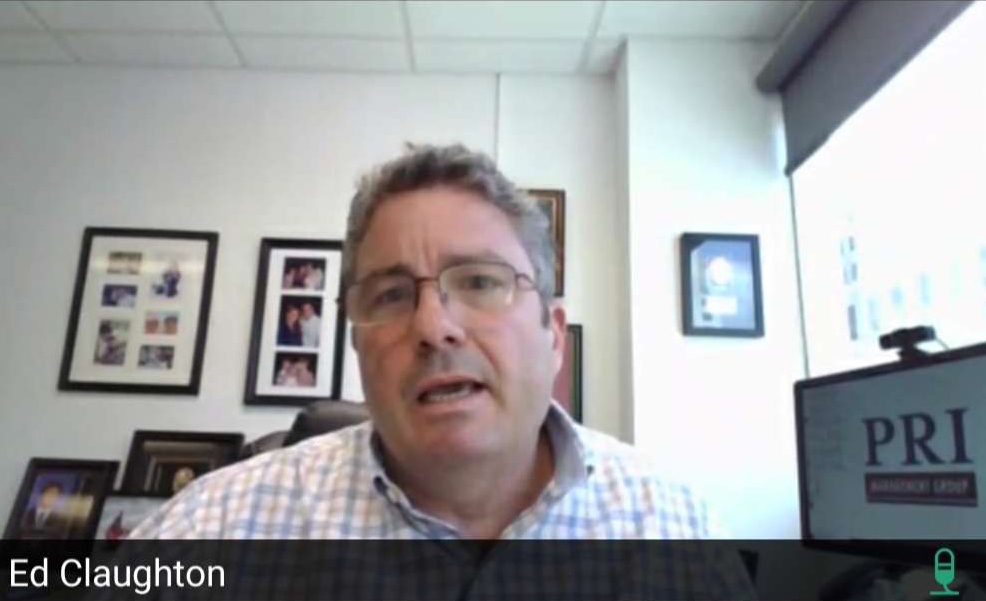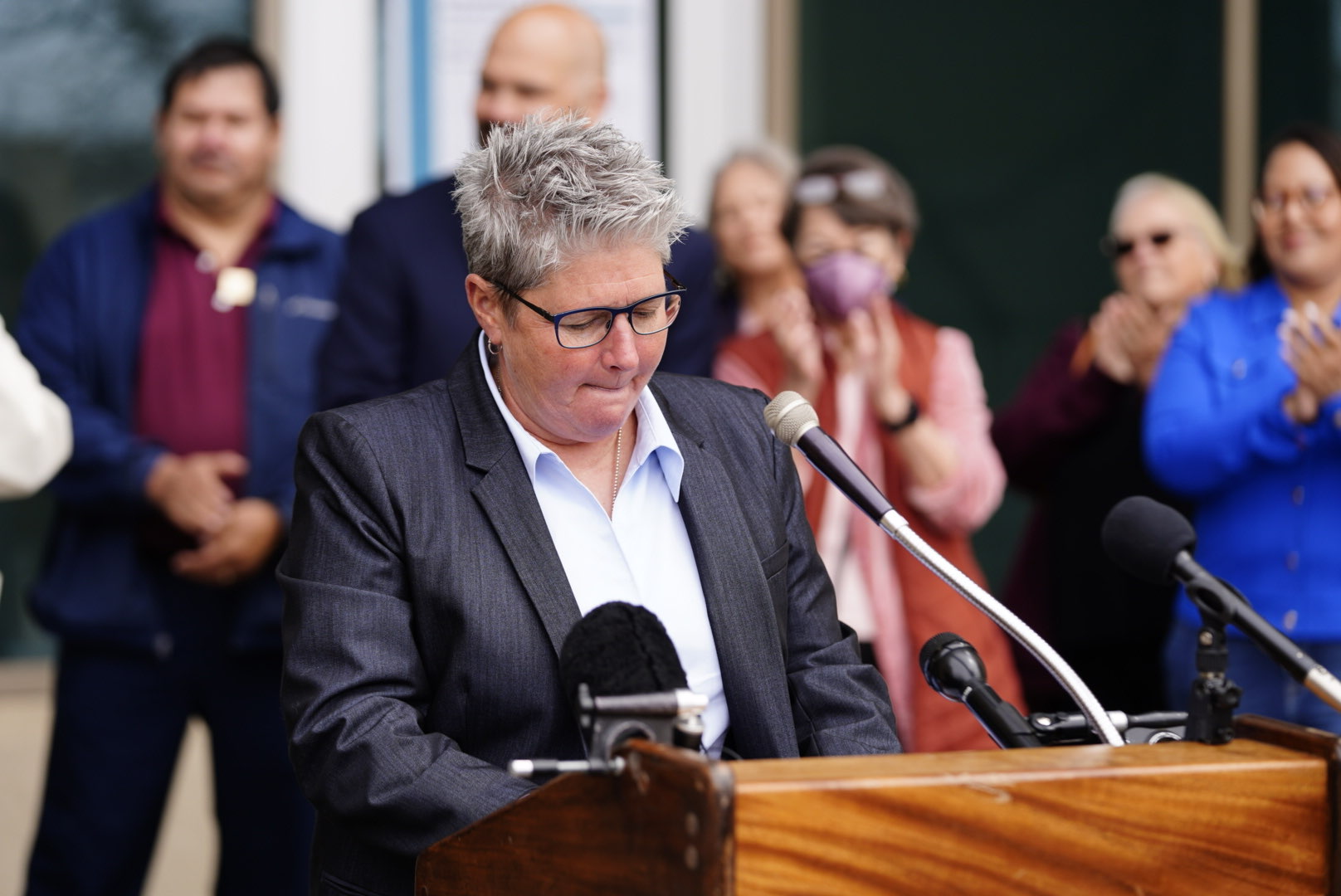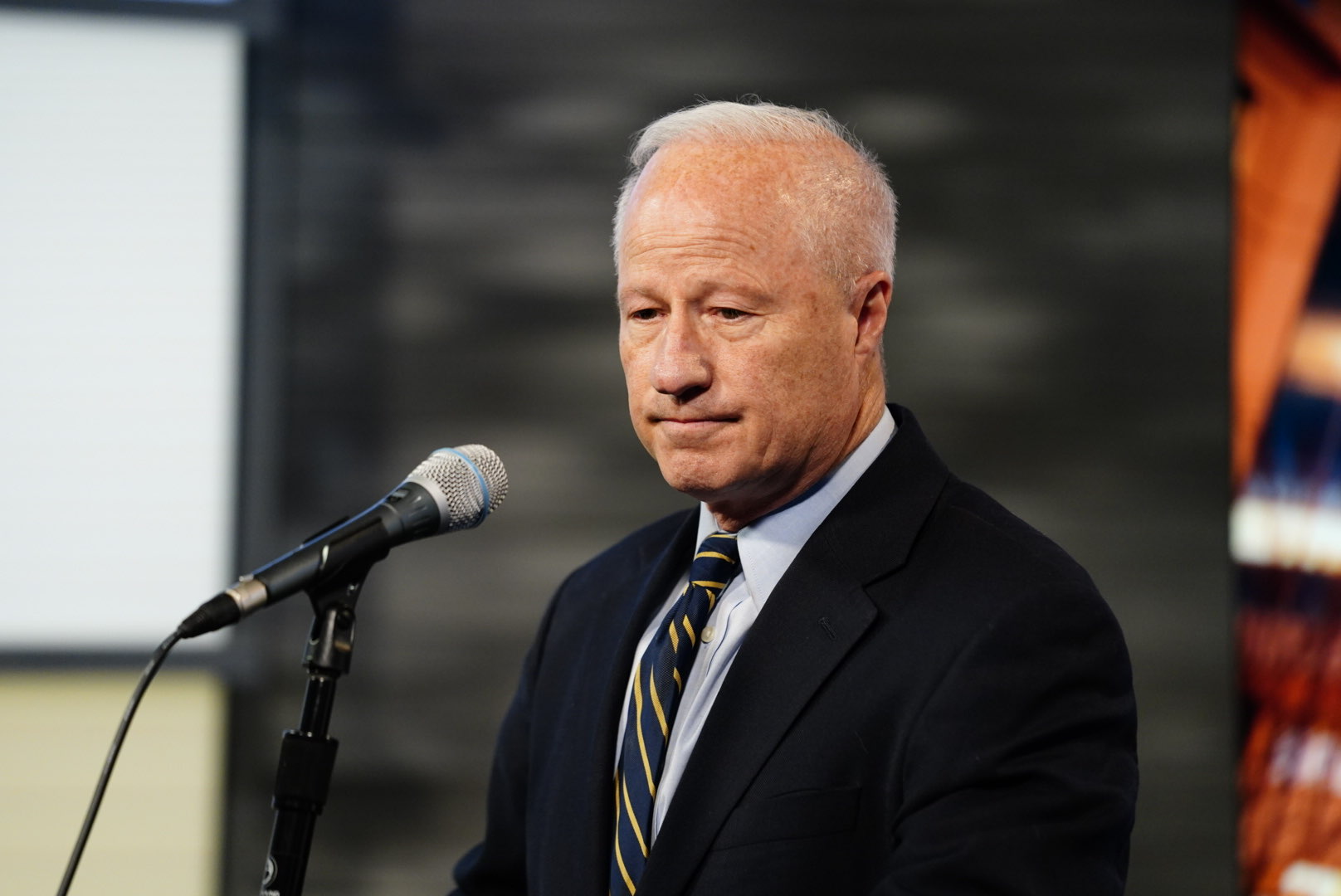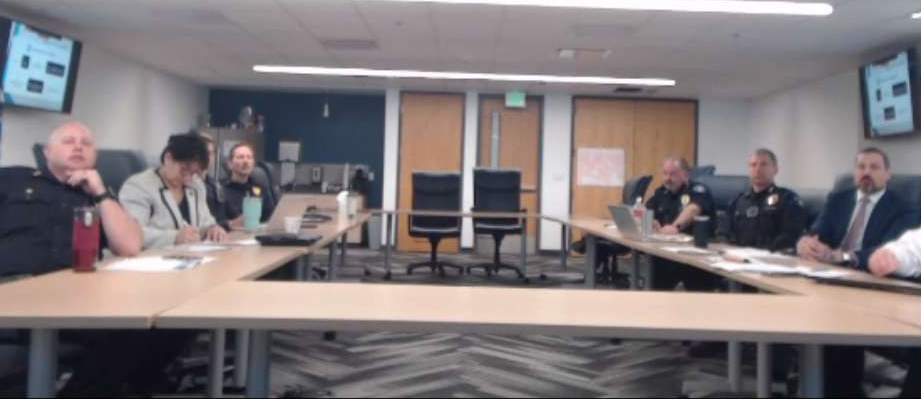Consultant defends contentious Aurora cop records review touted in chief’s ouster
[ad_1]

AURORA | Lawmakers who supported leadership changes in the police department questioned police officials and a representative of PRI Management Group on Thursday amid ongoing criticism of an explosive report by PRI about a record-keeping backlog.
At an April 14 policy committee meeting, council members Danielle Jurinsky and Dustin Zvonek also tried to refute key points of an April 13 Sentinel Colorado article, which exposed inconsistencies between allegations made in the report and the realities of the record-keeping process in Aurora’s Police Department.
In the report — made public April 5, the day before City Manager Jim Twombly fired Wilson — PRI founder Ed Claughton characterized thousands of police reports that were awaiting transcription by APD’s records section as a serious threat to public safety.
Chief Wilson, through her attorney, said last week that some members of city council and city management purposely misconstrued the issue and the report to justify her firing, a maneuver based on antipolice reform politics, not public safety.
Neither city council members nor Claughton addressed information from a Sentinel story revealing numerous social media posts he’s made over the past few years lambasting police reform efforts across the country as well as Black Lives Matters. Claughton became embroiled in a controversy where police questioned his objectivity during his bid for a contract in Wisconsin about 10 years ago.
Claughton stood behind his review on Thursday, saying that the transcription backlog was dangerous.

Transcription in this context refers to the process of checking reports submitted by police officers for inaccuracies in form and attaching national crime category numbers that help with the collection of criminal justice statistics.
Also on April 5, Mayor Mike Coffman and others criticized police leadership over the findings of the report, with Coffman posting on social media that “there is absolutely no excuse for this, and the safety of our residents has been compromised because of a catastrophic failure of leadership within the department.”

Jurinsky shared a link to a news article about the report and said it was “time for significant leadership changes in the APD.”
While the report blamed police leadership for the struggles in the records section, PRI and Claughton himself have since said the report was not meant to “evaluate or impact the employment of the Chief of Police.”
Claughton wrote that police reports “do not get routed by the system for follow-up action or investigation until the transcription process is complete.” Police told The Sentinel last week, however, that investigations regularly take place prior to and during transcription, and that reports awaiting transcription are still immediately viewable in the department’s Versadex records management system.
Claughton and police qualified those statements under questioning by Jurinsky and Zvonek Thursday, with Claughton pointing out he had also written that “in some situations, detectives are directly advised of serious crimes and specifically request to have reports transcribed/approved so they can be printed or filed for prosecution.”
Sgt. Faith Goodrich, who on April 8 said reports are accessible in the transcription queue, acknowledged that untrained officers may have difficulty locating backlogged reports in Versadex.
“There’s truth to both statements. They are able to get into there and see all of that, but a lot of them probably don’t know how,” Goodrich said. “If they haven’t done a stint with detectives or some extra training, they may not know how to do that.”
While Acting Capt. Chris Amsler previously told The Sentinel that he did not believe the backlog impacted investigations, Lt. Bob Wesner said the investigations of four child abuse cases and two missing persons cases were delayed by weeks.

On Friday when meeting with The Sentinel, Amsler said a police lieutenant working with the backlog issue said no murder cases were identified that were substantially affected by the backlog and that while not every one of the cases in the backlog had been reviewed, “we do not believe that any of those cases that were in the transcription queue affected any of our investigations.”
Police spokesman Matthew Longshore later wrote in an email that police determined the delay was due to the transcription backlog because “after finding out about the cases from other sources (DHS, Victims etc.) a search of the database resulted in finding the delays and cases not yet being routed to detective units.”
Police did not immediately respond Thursday afternoon to the question of whether it is typical for those types of cases not to be investigated until after transcription takes place. Officials said on April 8 that serious cases, including crimes against children, are usually forwarded for follow-up independent of that process.
Twombly said police developed “workarounds” in fall 2021 to be able to examine cases in the backlog — at least five of the cases mentioned by Wesner were reported in July 2021 or earlier that year.
As he dismissed “misinformation” that he said had been published by the media in relation to the PRI report, Claughton defended statements in the report about problems such as those facing APD’s records section making the city vulnerable to violent incidents like the 2015 mass shooting in Charleston, South Carolina.

Claughton said one of the reasons that shooter Dylann Roof was able to acquire a firearm was a data entry mistake made by a records employee in connection with a prior drug arrest. Claughton and media outlets that reported on the shooting did not say that the mistake was associated with any transcription backlog.
“There’s no question that (records) is a high-risk area,” Claughton said.
The PRI founder also dubbed as misinformation claims that none of the thousands of reports in the backlog had been investigated. Zvonek previously posted on Twitter that “over 2500 victims … didn’t have their case investigated” because of the backlog.
Claughton said again that he believed a backlog could pose a potentially serious public safety issue.
“I recognize through the PRI report the risk we were facing, and I think there can be debate about what level of risk that was,” Twombly said.
The city manager and others spoke about the importance of transcription for proofreading reports and as a quality-control measure.
“When we’re trying to protect our community and keep our officers safe, we want the minimal risk possible, so that’s what we’re shooting for,” he said.
Police reported Thursday that the backlog had been reduced to 59 reports.
When Zvonek asked why Amsler told The Sentinel that no investigations were believed to have been impacted if that was untrue, Twombly did not weigh in definitively on the statement’s accuracy but said that “no one from police or city staff has presented facts or research to me that proves that there has not been an impact.”
“I’m not disputing those statements,” Twombly said. “However, I have to reserve judgment about its accuracy until we can research timelines of crimes, transcriptions and initiation of investigations.”
Zvonek also referred to “a very public effort to minimize the seriousness of it” in the context of The Sentinel article.
“The thing that’s bothersome to me is … instead of trying to focus on what is potentially a very serious threat to our city … instead of focusing on that, there’s such a desperate effort to discredit it that we’re now having quotes from city officials in the paper that (are) countering a report that was put out by this firm,” he said.
Claughton estimated PRI’s staffing study in the records section would be completed in the next one to two months.
[ad_2]
Source link